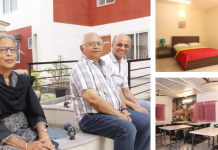In our changing society, the welfare of older adults has become increasingly important. Senior citizen’s homes, also known as retirement communities or assisted living facilities, have emerged as pivotal contributors to this evolving landscape. These establishments not only provide essential care for the elderly but also have a profound impact on society as a whole. In this article, we’ll explore why senior citizens are a significant and invaluable component of our society and how senior citizen’s homes contribute to their well-being.
The Contribution of Senior Citizens to Society:
Caregiving and Emotional Support: Senior citizens offer crucial caregiving assistance and emotional support to their families. Their presence is a source of stability and comfort, helping families navigate the challenges of aging.
Community Engagement: Seniors actively participate in various groups and social activities, enriching their communities with their experience and wisdom. Their involvement contributes to the development of thriving, close-knit communities.
Encouraging Lifelong Learning: Seniors exemplify the importance of lifelong learning by actively pursuing personal growth throughout their lives. Their commitment to continuous self-improvement sets an inspiring example for people of all ages.
Sharing Knowledge and Mentorship: The vast knowledge and expertise held by senior citizens benefit society by fostering learning and mentorship. They pass down their insights to the next generation, enriching society in various fields.
Volunteering and Civic Involvement: Seniors frequently engage in volunteer work, contributing their time and skills to charitable organizations and community projects. Their active roles in neighborhood clubs and organizations influence community development.
Also read: Vanaprastha rental homes for senior citizens
The Impact of Senior Citizen’s Homes on the society:
- Promoting Active Aging: Senior living communities create vibrant settings that motivate residents to lead active and engaged lives. They offer diverse activities, including gardening, exercise classes, arts and crafts sessions, and cultural events. This encourages active aging, reduces strain on healthcare systems, and enhances residents’ sense of purpose.
- Fostering Socialization: Senior citizen homes combat loneliness and social isolation among the elderly. Residents effortlessly connect with like-minded individuals, building relationships, companionship, and a sense of belonging, all of which boost mental health and overall quality of life.
- Safety and Security: These homes prioritize residents’ safety with measures such as emergency response systems, security personnel, and controlled access. Staff members are trained to prevent accidents, providing a secure environment for seniors.
- Peace of Mind: Families find reassurance knowing their loved ones receive professional care, guidance, and supervision in senior citizen’s homes. Seniors themselves feel secure, surrounded by caring individuals who attend to their well-being.
- Dietary Support: These facilities provide balanced, customized meals tailored to residents’ dietary needs, promoting good health and overall well-being. A nutritious diet positively impacts seniors’ health and quality of life.
- Physical and Mental Activities: Senior living homes offer a variety of activities and entertainment options to keep residents engaged and mentally active. These activities enhance their physical, mental, and emotional health, improving their overall quality of life.
- Independence with Support: Senior citizens appreciate their independence, and senior citizen’s homes respect their privacy and preferences while offering assistance with daily tasks when needed. This balanced approach allows residents to maintain their routines comfortably.
- Access to Medical Facilities: Some senior living communities provide skilled nursing care for seniors with complex medical needs. On-site medical and caregiving services ensure residents receive the care required to maintain their independence and health.
Conclusion
There are several benefits of elderly living communities which are essential for society’s support and enrichment. These facilities offer a supportive setting where elders’ well-being, health, and uniqueness are appreciated. Senior citizens’ homes make sure that residents can age gracefully while preserving their independence and dignity by customizing care programs to match unique requirements and preferences.
These homes develop into vibrant hubs that promote intergenerational connections, cultural preservation, and ongoing learning by designing places that facilitate these things among members of all ages. Let us embrace and support these homes, ensuring that they continue to play an integral role in nurturing the well-being and vitality of our society.






